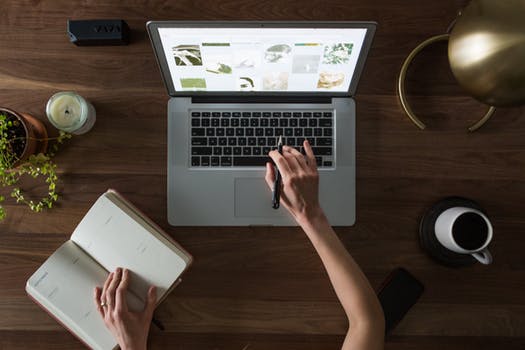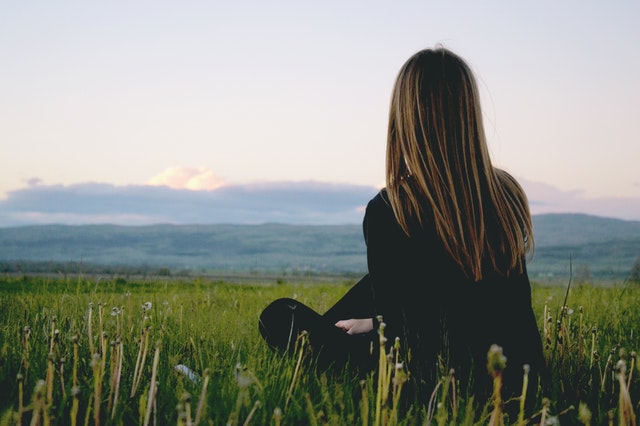It wasn’t long ago that I couldn’t even imagine myself this way; spending the first part of a day away from the needs of my own little people, existing in an act purely for myself, and all in the blessed company of another woman. Early motherhood consumed many of the friendships I had as a younger me. The giving of oneself to children leaves a minuscule portion of time left to supplement any extra relationships. I had all but given up on the fact that there was a whole population of women just like me out there, somewhere, having babies and maneuvering what future friendships looked like.
Connecting with people while endeavoring to mother: breastfeeding, tending to crying babies, unsuccessfully sucking in an empty-womb-tire that now exudes over the top of my pants no matter what shirt I’m wearing…all this was foreign. And truth be told, making friends after motherhood was one of the hardest things I was yet to do.
My recollections of mommyhood with three tiny people are overwhelmingly magical moments mixed with spouts of intense loneliness. On normal days I existed tucked away with my brood, down a gnarly dirt road, doing my damned best to harvest my growing kids with a side of wild, but basically using the same techniques other parents did: potty training (that ultimately only trained me to lower my expectations;) the night-time routines that whitled me down to a hollow person who only read picture books, sang the same sought after songs, exhausted enough to fall asleep on myself while half standing beside a bunk bed; the adventures in nutritious eating that required every molecule of my creativity to be expended, and then every ounce of patience, as a meal made of complete amino acids was thrown to the ground on the whim of toddler refusal.
I often looked away from these moments of despair in search of someone who could witness the crazy amount of will I was expending in the act of not losing it; someone who wasn’t going to analyze what I could have done differently; someone who was there to validate the pure raw difficulty of being a caregiver; to just acknowledge that shit was rough but light was at the end of the tunnel… unfortunately, this person wasn’t going to drop out of the sky and find me. I had to brave the public world, a place that doesn’t welcome the regular outbursts of small children.
I wrangled my untamed babies into the car: 4 years, 3 years, and 5 months old, got them to a decent looking state, packed a sensational amount of necessities for a 20-minute ride, and headed into town with hope. Baby Gym was the destination; a warehouse filled with soft-cornered playthings, trampolines, balls, and moms with preschoolers. I saw four walls segregating me from normalcy. Pay $3 per kid and hang out with mothers who were once young women with friends, now morphed into messed up versions of themselves; no sleep, desperate to talk to someone, conversations funneled into the deliriums of child-talk.
There were clicks, and age gaps, and religious barriers and all manners of insecurities running the entire gamut of parenting, including but not limited to: co-sleeping, bottle-feeding, vaccinations, pacifiers, discipline methods… Our conversations consisted of how many times a baby barfs per hour, what kind of rash you think this is, how a baby’s daddy failed to man-up. I knew I fit the demographic. I knew I was supposed to fit in here. But I didn’t.
I had one hour in this one setting; 60 minutes out of a week of solitary mothering, to come to this place where little, loud, narcissistic people were actually welcome in public, to find a friend. There were many days that I drove back home, wiping silent tears from my cheeks, as Haven babbled loudly in the backseat alongside her brother and sister. I just couldn’t do this thing alone anymore.
The next week we tried again. I pulled into the parking lot beside another mother. We both read the sign stuck to the door from our cars. “Baby Gym, closed.” I remember glancing at her through the passenger window. Our eyes met, the same way you’d expect two strangers to fall in love at first sight. But what I saw in this woman’s eyes, mirrored there, was our shared desperation at this moment.
Someone suggested the park. I had know idea if that meant we were both going. I drove there resigned to wet slides and solitude with children (if there is a word for that, I’d love to know what it is). I got out of my car to see the woman from the gym doing the same. She unstrapped a baby from his car seat and my heart skipped to find a connection; we had babies that were similar in age. This could be a beginning, a talking point.
We walked the stretch of the bridge together toward the park. On one side we were strangers, meeting by chance, with a shared angst for parenting alone on a day to day basis. We traversed across each wide plank, slowly with the union of our stumbling kids, our shared struggles, our humilities turned to common ground. And on the other side, a new place opened up to me, a destination for both of us to be, together.
(You sally ass clown, you know who you are.) Courtney and I parted that day with the awkward request for exchanging numbers. I really didn’t know if she was in to me. We talked about snowboarding, and painting, and making things with our hands. We talked about the kids too, but I had almost forgotten what a conversation was like for two women existing as entities in a world of mothering. She reminded me.
This story has a happy ending, because good friends are few and far between, and Courtney and Charity are both dear to my heart still today. They have taught me that I am able to give and receive friendships with many women, on many levels. The public world is a scary place by yourself, with kids. It doesn’t make itself available to mothers with children, without ridicule. We need to pipe down and be nice in public, and it isn’t always possible.
Having a comrade in parenting opens up spaces that once felt prohibited. We free each other from that ostracized feeling, and normalize the joyful noises kids can make. We empower one another to be moms and women in life; to be mindful and mama. I couldn’t do it without you.
-Emily










































